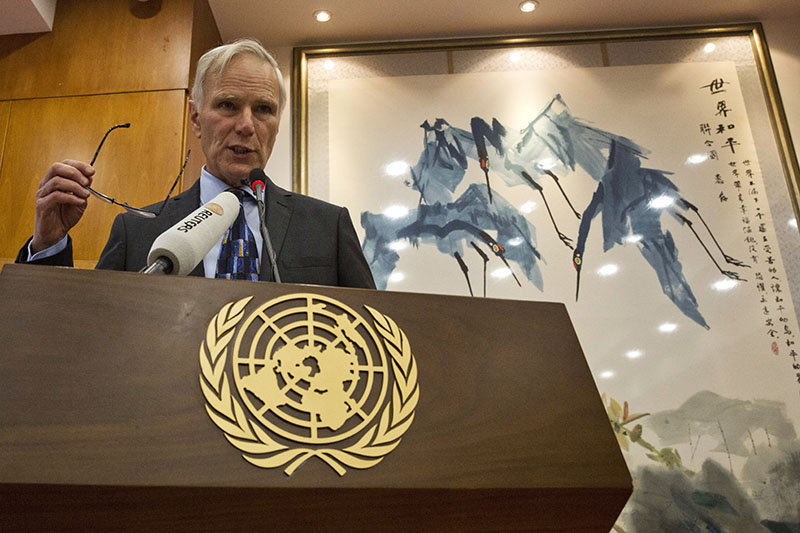China begins trial of prominent rights lawyer Jiang Tianyong
BEIJING: Chinese authorities on Tuesday began the trial of a prominent rights lawyer on charges of subverting state power in a case that drew the attention of the United Nations.
Jiang Tianyong, who took on sensitive cases such as defending practitioners of the banned Falun Gong spiritual movement, disappeared last November while visiting the family of another detained rights lawyer, Xie Yang.
Jiang was formally charged with subversion more than six months later.
The Changsha Intermediate People's Court in central China's Hunan province released a statement on its official social media account half an hour before the trial began on Tuesday saying it would live-stream what it called an "open" hearing.
However, while the court posted video clips of the trial, they were not streamed in real time. The clips posted on Tuesday morning largely involved court officials and state prosecutors reading statements.
The Chinese authorities have video-streamed or live-blogged increasing numbers of court hearings in recent years as part of a push towards judicial transparency.
Rights activists say that in sensitive cases the hearings are only selectively made available when the defendant has already agreed to go along with a pre-prepared outcome.
Jiang's wife Jin Bianling, who lives in the United States, told Reuters by chat messages on Tuesday that she had not been given advance warning that the trial would be taking place.
Jin said she only became suspicious that the trial might be impending when she was unable to reach Jiang's parents and sisters over the weekend.
No one answered the publicly listed phone number for the courthouse on Tuesday.
Jiang had criticised an ongoing government crackdown on dissent that has seen hundreds of rights lawyers and activists detained or sentenced since the summer of 2015.
He was a key figure in supporting the lawyers and their families until he himself was detained.
The United Nation's Special Rapport on human rights and extreme poverty Philip Alton met with Jiang during a visit to China last year and has publicly expressed concern that Jiang's disappearance was in part reprisal for their meeting.
Chinese state media also printed an interview with Jiang in March where he confessed to having helped fabricate reports of torture of Xie Yang, released to the public by Tie's lawyer, who later told Reuters he stood by his account.
During his own trial in May, Xie read a statement denying having been mistreated. He was found guilty of subversion.
State media often release interviews by detained suspects, usually before the trial has begun, that purport to show a voluntary confession by the individual.
Rights activists say such statements are often scripted and that individuals are coerced into them as part of a deal with authorities to lighten their sentence.






